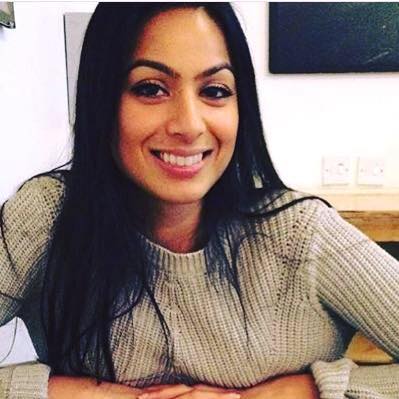Anyone can get a name wrong. But when you are on the receiving end regularly, life can get a bit more complicated.
If there's anything that humans can take for granted it's that they'll be given a name. If you're growing up in a world where your name can be a source of confusion, mispronunciation, shame and error, that gives your life an awkwardness that others don't have to worry about.
Most people want to blend into the world. They don't want to stand out for their name.
I've grown up in schools and groups where there were plenty of Beckys, Johns and Steves. We've all heard the jokes about some boards having more Peters than women. It's not like we aren't used to distinguishing between popular names.
My name, Chandrika, is a traditional North Indian name. The equivalent of Margaret or Gertrude because my grandad named me. I bet you could spend a lifetime in Britain without meeting someone called Chandrika. On school trips as a kid when we went into the museum gift shop, there would never be a magnet or a bracelet with the name 'Chandrika' on it. At least my name means that people will never mix me up, I consoled myself. Surely encountering an unusual name would sharpen people's senses, stop them in their tracks - they might pay more attention.
We've all got people's names wrong. My mum pronouncing Siobhan or Niamh would likely be touch-and-go. It's always fine to double-check how someone pronounces their name - better that than adding an extra syllable here or random emphasis there. Maybe you've seen that Linked-in have a feature where you can record your name, and phonetically spelling it for others can always help too. It's interesting to me that my somewhat faded Prestonian accent makes me say my own name as Chan-dur-ikah rather than the originally intended Ch-und-rika that you'd hear in Gujarat.
Of all the microaggressions, mispronouncing someone's name is relatable, understandable even. Can we even call it a microaggression?! Of course we all rely on Outlook's autofill when finding an email. But when we shut off like this, moving into autopilot and ultimately stop thinking about the person behind that name, we start grouping people we deem similar and faces become hazy: this person is the same as that person because...
When someone messes up your name it makes you think that you're odd, that you're wrong, that you're missing something that was meant for you. It makes you question whether people know who you are or whether they've mixed you up with the other brown girl. It makes you wonder how else they might be reducing you to a name, a type, a group.
When we make an error about someone's name, we might be picking at a wound that person has carried their whole life.
Someone saying our name out aloud sounds like honey to our ears, similar to when they say the names of our loved ones. I use my experience and understanding of identity to work as a culturally sensitive therapist. I've found my own social transitions having grown up in a lower socio-economic context and finding myself at a somewhat elitist Harry Potter-esque university has given me a social agility and an ease with difference. Being multi-lingual, British Asian and a parent who's raising a mixed heritage son has fine-tuned my curiosity of belonging, community and background. I have come to see how much challenges of identity resonate with so many of the clients I work with.
Our names are inseparable from our identity. It's one of the first words and most common words we hear as a child. So, what's in a name? Beyond heritage, culture and identity, a name is the one marker of our uniqueness, our humanity and the one thing, maybe one of the easiest, we can try to get right.

